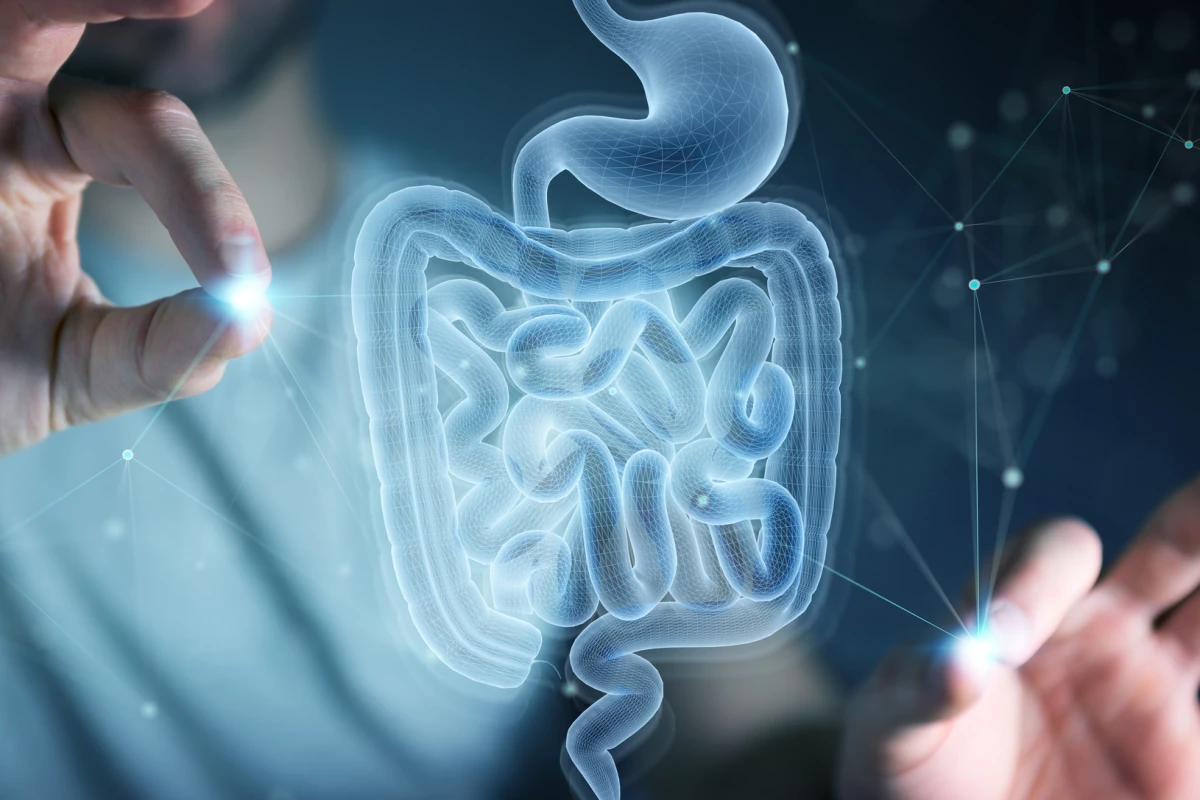A first-of-its-kind study has investigated the relationship between COVID-19 severity and the gut microbiome. The observational research suggests specific microbial patterns correlate with disease severity and those bacterial imbalances may account for some cases of “long COVID”.
A growing body of study is finding a relationship between our immune system and the massive population of bacteria living in our intestines, known as our gut microbiome. These links suggest our microbiome may influence, or be influenced by, inflammatory activity in the body. And this relationship could play a role in everything from depression and obesity to Alzheimer’s.
In light of these recent microbiome discoveries it is reasonable to wonder what kind of influence gut bacteria has on perhaps the greatest acute health crisis of our time, COVID-19. A handful of preliminary studies published in late 2020 suggested patients suffering from COVID-19 may present with novel gut microbiome signatures.
One study found COVID-19 patients presented with unique microbial compositions compared to patients with influenza and healthy controls. Another small pilot study, investigating a cohort of just 15, suggested there may be signs microbiome alterations correlate with COVID-19 severity.
This new study, published in the BMJ journal Gut, offers the most detailed investigation to date into the relationship between COVID-19 severity, the gut microbiome, and general inflammatory biomarkers. The research looked at blood and stool samples from 100 COVID-19 patients admitted to hospital, compared to 78 healthy control subjects.
The study found significant microbial differences between COVID-19 patients and controls. Species including Bifidobacterium adolescentis, Faecalibacterium prausnitzii and Eubacterium rectale, which have previously been shown to play a role in immune system activity, were all seen in notably lower volumes in COVID-19 patients. COVID-19 patients also displayed unusually higher volumes of bacterial species including Ruminococcus gnavus, Ruminococcus torques, and Bacteroides dorie.
“Moreover, this perturbed composition exhibited stratification with disease severity concordant with elevated concentrations of inflammatory cytokines and blood markers such as C creative protein, lactate dehydrogenase, aspartate aminotransferase and gamma-glutamyl transferase,” the researchers report in the study.
A smaller subset of COVID-19 patients in the study were followed for up to a month after recovery and discharge from hospital, revealing the disrupted microbiome signatures seemed to persist beyond the phase of acute disease. One hypothesis raised by the researchers suggests microbiome disruptions could play a role in the enduring symptoms many COVID-19 patients suffer from in the months following infection.
It is important to note these findings are very preliminary and cannot offer insight into causality. It’s unclear, for example, whether these particular COVID-19 patients had irregular microbiome signatures before viral infection. And it is unclear whether these microbiome signatures directly influence the severity of the disease, or are merely a consequence of it.
“… the observed gut microbiota composition could simply be a response to patients’ health and immune states rather than a direct involvement in disease severity, as such it may not be directly applicable to predicting disease susceptibility in non-COVID-19 subjects,” the researchers note in the new study.
Perhaps the most interesting hypothesis to come out of this preliminary study is the proposition that some kind of personalized microbiome therapy could be a useful treatment for patients following the acute phase of COVID-19. A great deal of work is still needed, however, before any kind of real-world clinical application arises from this field of investigation.
“The dysbiotic gut microbiota that persists after disease resolution could be a factor in developing persistent symptoms and/or multi system inflammation syndromes that occur in some patients after clearing the virus,” the researchers conclude. “Bolstering of beneficial gut species depleted in COVID-19 could serve as a novel avenue to mitigate severe disease, underscoring importance of managing patients’ gut microbiota during and after COVID-19.”
The new study was published in the journal Gut.
Source: BMJ via EurekAlert




